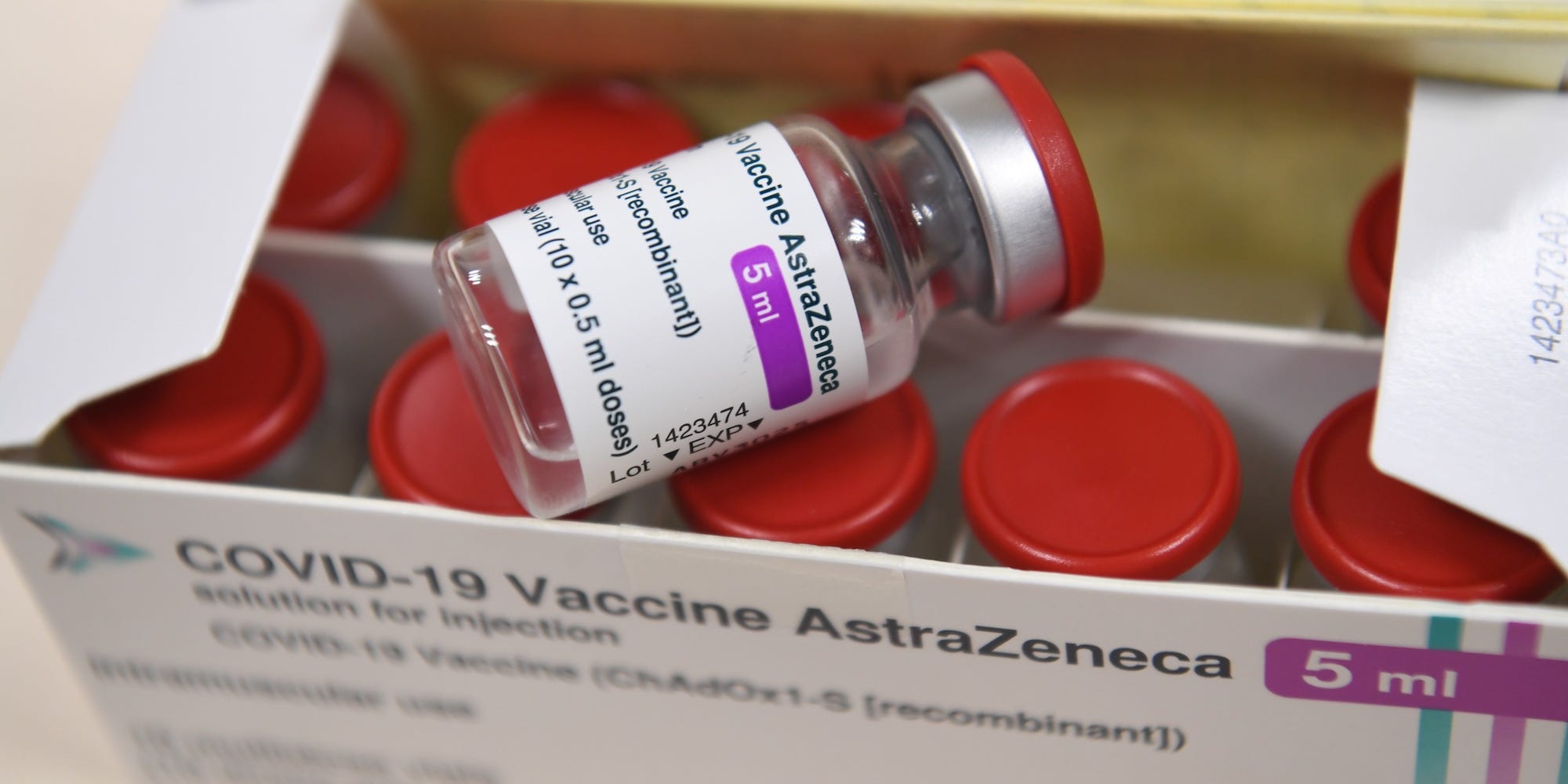
ALAIN JOCARD/AFP via Getty Images
- AstraZeneca's COVID-19 vaccine has been suspended in 16 countries, over a supposed link to blood clots.
- AstraZeneca heavily disputes that the link is real, as do health authorities elsewhere.
- The countries suspending the shots say they are doing so as a precaution.
- Many experts say that a stop-start approach is undermining confidence. Meanwhile, COVID-19 is still spreading.
- See more stories on Insider's business page.
Decisions by at least 16 countries to suspend use of the AstraZeneca vaccine is "baffling", "reckless" and "political", experts have said.
A growing list of nations has pulled the shot from use, with most of the biggest nations of Europe deciding to stop on Tuesday.
The decisions came after several countries said they were investigating whether there is a link between the vaccine and reports of blood clots.
The EMA, the WHO, and AstraZeneca have insisted that there is currently no evidence for such a connection. AstraZeneca said its data shows such clots are occuring less in vaccinated groups than in the general population.
The countries suspending the vaccine generally defended the move as an example of extreme caution, designed to maximise confidence in the shot.
But, as the list of countries grew longer, some experts said that the suspensions are more likely to undermine confidence. And while the programs are paused, the virus is still infecting people.
Here is the list of countries that have suspended the vaccine as of 07:00 a.m. ET:
- Sweden
- Slovenia
- Latvia
- Spain
- Luxembourg
- Indonesia
- The Netherlands
- Ireland
- Denmark
- Norway
- Iceland
- Bulgaria
- Germany
- France
- Italy
- Democratic Republic of Congo
Halting the vaccine rollout is "baffling", according to Dr Michael Head, a Senior Research Fellow in Global Health at the UK's University of Southampton.
Speaking to the UK-based Science Media Centre (SMC) on Monday, he pointed to reports that the number of blood clots in the vaccinated population is "the same (and possibly, in fact lower)" than in the general population.
"Halting a vaccine roll out during a pandemic has consequences. This results in delays in protecting people, and the potential for increased vaccine hesitancy", he said.
Also speaking to the SMC, Dr Stephen Griffin of the School of Medicine at the University of Leeds called the suspensions "probably not proportionate."
He said they were "bound to fuel hesitancy, or more extreme anti-vaccine sentiment".
AstraZeneca has said that there were fewer events of reported blood clots in the vaccinated population than in the general population.
Countries that have suspended the vaccine defended their decision.
French President Emmanuel Macron said the decision was taken "as a precaution" until the European Medicines Agency gives extra assurance.
Germany's health ministry said on Monday that its decision to suspend the vaccine was "purely precautionary". German health officials noted a "conspicuous accumulation" of very rare cases of blood clots in the brain.
Responding to Germany suspending AstraZeneca vaccination, prominent German virologist and politician Karl Lauterbach said on Monday in a tweet that "Based on the data available, I consider this to be a mistake."
-Karl Lauterbach (@Karl_Lauterbach) March 15, 2021
Ireland's Deputy Chief Medical Officer conceded that "we may be overreacting" when suspending the vaccine on Sunday, RTE reported.
Political reasoning
"I think it has gotten very political", Professor Jeffrey Lazarus, a researcher for the Barcelona Institute for Global Health, told Al Jazeera English on Monday.
"Countries are starting to fear, if causality [a link between the vaccine and the blood clots] is determined at some point and they were the country that continued to vaccinate, that would be problematic for themselves"
Once a country has decided to suspend a vaccine due to safety concerns, "it is very difficult for others not to", said Martin McKee, a professor of European public health at the London School of Hygiene and Tropical Medicine, in a Monday email to Insider.
Nicola Magrini, director general of Italy's medicines authority told Italian newspaper la Repubblica in an interview Reuters reported on Tuesday that "the choice is a political one."
Europe is in a perfect storm of rising COVID-19 cases, lagging vaccine roll out, and population mistrust against the Astrazeneca vaccine.
"We do need to consider the real harm from delays in immunization campaigns at a time when the incidence of COVID is still increasing in several European counties when deciding whether or not to pause vaccination campaigns." Griffin, the academic in Leeds, said on Monday.
There is no "better way to play into the hands of antivaxxers than to spread fear and mistrust" by "unilaterally suspending" the use of the AstraZeneca vaccine, Samy Ahmar, Head of Health for UK charity Save the Children, said on Tuesday.
-Samy Ahmar (@SamyAhmar) March 16, 2021
"I don't think you can consider these pauses as being cautious, they actually could be doing more harm than good." Sir David Spiegelhalter, a professor of statistics at Cambridge University, UK, has said, the Daily Mail reported on Tuesday.